2010-05-20 13:55
Korea becomes aviation leader in the Pan-pacific region
The Ministry of Land, Transport and Maritime Affairs announced "2010 Aviation Policy Implementation Plan" on May 6th, which contains specific strategies for the implementation and management of the 1st Aviation Policy Basic Plan (2010~2014).
The newly announced "2010 Aviation Policy Implementation Plan" will be implemented following the amendment to Aviation Act (December 2007) and the 1st Aviation Policy Basic Plan (December 2009), and stakeholders and experts in aviation-related industries had a wide range of discussions before its confirmation.
The plan analyzes the outcome of aviation policy implementation in 2009, and proposes new aviation policy directions for 2010 with specific plans to accomplish 52 tasks explained in the Aviation Policy Basic Plan.
Air services liberalization and capacity entitlement between Korea-EU, Korea-ASEAN, and Korea-China will be promoted continuously to enhance competitiveness of Korean air carriers in the global air transport market.
To this end, the Ministry will negotiate and strive to reach an agreement on liberalization with Member States of the EU, including Germany, Belgium, and Spain, and hold air talks with China and Japan to proactively encourage liberalization in Northeast Asia.
In addition, the Ministry will facilitate the further development of not only large air carriers, but also LCCs (Low-Cost Carrier) and GA (General Aviation). At the same time, the Ministry will collect and study reports on air transport market trends, aiming at utilizing the information to establish a solid foundation for future-oriented policies.
The 3rd phase expansion at Incheon International Airport and the 2nd construction of hinterland logistics complex will be forwarded without delay so that Incheon International Airport can reaffirm its status as a hub airport in Northeast Asia. The mid-term comprehensive plan for the 4th airport development, a master plan for airport development, will be established and announced by the end of this year.
The Ministry will establish a set of plans for airport development and operations to cope with changing environment home and abroad; for example, it will adopt the Airport Operating Certification to enhance efficiency in airport operations, considering specific conditions of each airport and air traffic volume, and carry out a feasibility study on the construction of airport on Ulleungdo to enable easier access to Ulleung County.
The Ministry will develop air transport risk indicators, establish a system for continuous monitoring and preventative risk management, and enforce the autonomous safety management system.
The Ministry will develop Korea’s next generation aviation system such as upgraded GNSS (Global Navigation Satellite System), and set up a civil-military working-level group on airspace to boost efficiency of air traffic control through improvement in airspace management and other measures.
In addition, the aviation security assessment system will be adopted to evaluate the overall implementation of aviation security procedures by airport corporations and air carriers. Additional new x-ray security equipment will be installed to tighten up security at airports and for cargo services.
The Ministry will develop the aircraft maintenance industry to diversify the aviation industry in Korea, and complete a roadmap of MRO (Maintenance Repair & Overhaul) complex by the end of this year. It also plans to produce leisure aircraft and actively encourage systematic training for aviation personnel.
In addition, the Ministry will promote the amendment to Aviation Act through lifting regulations on applications for registration and expanding its scope of maintenance. Also, the Ministry will prepare a mid-term policy for the aviation logistics industry that contains analysis on new trends in the logistics environment and exemplary cases in developed countries.
Korea will complete the production of 4-seat small aircraft, and launch the development of 2-seat lightweight aircraft. Furthermore, The "2020 Aviation Safety Technology R&D roadmap", which includes the development plans of private aircraft and leisure aircraft, will be developed.
The Uljin Flight Training Center will open in July to foster highly-qualified pilots. The Ministry will also support universities educating professional aviation personnel, and find opportunities to dispatch interns to aviation-related international organization, and Korean and foreign companies.
While striving to enhance Korea's status as an aviation leader in the world, the Ministry will put forward various policies for air passengers and green aviation which have not been regarded as priorities in the past.
With the aim of being elected to the ICAO Council for the fourth consecutive time, the Ministry will play a more active role in the global aviation. Its activities include holding the 3rd Conference on International Air Transport Cooperation and inviting aviation personnel from Africa and Latin America to provide training courses which cover air navigation system, airport operations, and security.
The amendment to Aviation Act aiming to protect rights of air passengers will be prepared within this year. U-immigration which will enhance conveniences of air passengers will be installed and the earliest pilot operation can take place in June.
In accordance with the Airport Noise Abatement and Supportive Measures Act enacted in March to enhance quality of life of residents living near airports, the mid-term plan will be established within this year.
The Ministry will implement a comprehensive plan to cut greenhouse gas emitted in aviation and form a DB system of greenhouse gas emissions within this year. The actions are expected to lead air carriers to set CO₂ reduction goals voluntarily.
Korea became the 8th largest air transport country in the world in 2009 thanks to hard efforts of the government and air carriers for the development of aviation and the expansion of routes worldwide.
In addition, Incheon International Airport has been awarded the "Best Airport Worldwide" by ACI for five consecutive years. Korea has recorded "no major air accidents" for the last ten years and has the best implementation rate (98.89%) in the ICAO USOAP.
Based on these achievements, the "2010 Aviation Policy Implementation Plan" will enable Korea to make another flight to become an aviation leader in the Pan-pacific region.
The newly announced "2010 Aviation Policy Implementation Plan" will be implemented following the amendment to Aviation Act (December 2007) and the 1st Aviation Policy Basic Plan (December 2009), and stakeholders and experts in aviation-related industries had a wide range of discussions before its confirmation.
The plan analyzes the outcome of aviation policy implementation in 2009, and proposes new aviation policy directions for 2010 with specific plans to accomplish 52 tasks explained in the Aviation Policy Basic Plan.
Air services liberalization and capacity entitlement between Korea-EU, Korea-ASEAN, and Korea-China will be promoted continuously to enhance competitiveness of Korean air carriers in the global air transport market.
To this end, the Ministry will negotiate and strive to reach an agreement on liberalization with Member States of the EU, including Germany, Belgium, and Spain, and hold air talks with China and Japan to proactively encourage liberalization in Northeast Asia.
In addition, the Ministry will facilitate the further development of not only large air carriers, but also LCCs (Low-Cost Carrier) and GA (General Aviation). At the same time, the Ministry will collect and study reports on air transport market trends, aiming at utilizing the information to establish a solid foundation for future-oriented policies.
The 3rd phase expansion at Incheon International Airport and the 2nd construction of hinterland logistics complex will be forwarded without delay so that Incheon International Airport can reaffirm its status as a hub airport in Northeast Asia. The mid-term comprehensive plan for the 4th airport development, a master plan for airport development, will be established and announced by the end of this year.
The Ministry will establish a set of plans for airport development and operations to cope with changing environment home and abroad; for example, it will adopt the Airport Operating Certification to enhance efficiency in airport operations, considering specific conditions of each airport and air traffic volume, and carry out a feasibility study on the construction of airport on Ulleungdo to enable easier access to Ulleung County.
The Ministry will develop air transport risk indicators, establish a system for continuous monitoring and preventative risk management, and enforce the autonomous safety management system.
The Ministry will develop Korea’s next generation aviation system such as upgraded GNSS (Global Navigation Satellite System), and set up a civil-military working-level group on airspace to boost efficiency of air traffic control through improvement in airspace management and other measures.
In addition, the aviation security assessment system will be adopted to evaluate the overall implementation of aviation security procedures by airport corporations and air carriers. Additional new x-ray security equipment will be installed to tighten up security at airports and for cargo services.
The Ministry will develop the aircraft maintenance industry to diversify the aviation industry in Korea, and complete a roadmap of MRO (Maintenance Repair & Overhaul) complex by the end of this year. It also plans to produce leisure aircraft and actively encourage systematic training for aviation personnel.
In addition, the Ministry will promote the amendment to Aviation Act through lifting regulations on applications for registration and expanding its scope of maintenance. Also, the Ministry will prepare a mid-term policy for the aviation logistics industry that contains analysis on new trends in the logistics environment and exemplary cases in developed countries.
Korea will complete the production of 4-seat small aircraft, and launch the development of 2-seat lightweight aircraft. Furthermore, The "2020 Aviation Safety Technology R&D roadmap", which includes the development plans of private aircraft and leisure aircraft, will be developed.
The Uljin Flight Training Center will open in July to foster highly-qualified pilots. The Ministry will also support universities educating professional aviation personnel, and find opportunities to dispatch interns to aviation-related international organization, and Korean and foreign companies.
While striving to enhance Korea's status as an aviation leader in the world, the Ministry will put forward various policies for air passengers and green aviation which have not been regarded as priorities in the past.
With the aim of being elected to the ICAO Council for the fourth consecutive time, the Ministry will play a more active role in the global aviation. Its activities include holding the 3rd Conference on International Air Transport Cooperation and inviting aviation personnel from Africa and Latin America to provide training courses which cover air navigation system, airport operations, and security.
The amendment to Aviation Act aiming to protect rights of air passengers will be prepared within this year. U-immigration which will enhance conveniences of air passengers will be installed and the earliest pilot operation can take place in June.
In accordance with the Airport Noise Abatement and Supportive Measures Act enacted in March to enhance quality of life of residents living near airports, the mid-term plan will be established within this year.
The Ministry will implement a comprehensive plan to cut greenhouse gas emitted in aviation and form a DB system of greenhouse gas emissions within this year. The actions are expected to lead air carriers to set CO₂ reduction goals voluntarily.
Korea became the 8th largest air transport country in the world in 2009 thanks to hard efforts of the government and air carriers for the development of aviation and the expansion of routes worldwide.
In addition, Incheon International Airport has been awarded the "Best Airport Worldwide" by ACI for five consecutive years. Korea has recorded "no major air accidents" for the last ten years and has the best implementation rate (98.89%) in the ICAO USOAP.
Based on these achievements, the "2010 Aviation Policy Implementation Plan" will enable Korea to make another flight to become an aviation leader in the Pan-pacific region.
많이 본 기사
- 신년특집 기획/ 새해 컨시장 기상도 유럽 상승 vs 북미 혼조컨운임지수 넉달만에 2500선 넘어…6주 연속↑상하이항 5000만TEU·싱가포르항 4000만TEU 나란히 돌파BDI 1015포인트…케이프·수프라막스선 하락세 이어져해운협회, 부산항내 중대재해 예방 안전캠페인해운조합, 전환교통지원사업 24일까지 공모여수해경, 해양환경관리 모범선박 예인선 <세진 101>호 선정태웅로직스, 한화토탈에너지스 우수 파트너사 선정경기평택항만공사, 평택·당진항 배후단지 업무편의시설용지 분양인천신항 선광신컨테이너터미널, 전기구동 야드트랙터 13대 도입
- 해양수산부, 김혜정 신임 부산해수청장 선임대한조선, 그리스 선사 발주 석유제품운반선 4척 동시명명SK인천석유화학, 3300t급 급유선 도입…“서해 벙커링시장 경쟁력 강화...관세청, 설맞아 수출입화물 선적지원·24시간 통관등 특별대책 시행부음/ 한국선급 최원준 부사장 모친상인사/ 우진글로벌로지스틱스강도형 해수부 장관, “새해 글로벌공급망 관리 중점 추진”롯데글로벌로지스, ‘소비자불만해결 우수사업자’ 선정‘항만효율화 공로’ 주성씨앤에어 박진수 대표, 해수부 장관표창 영예BPA, 신년맞이 동절기 부산신항 안전관리 실태 점검





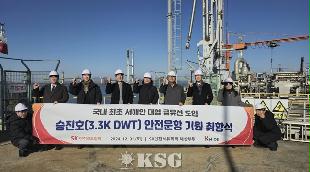

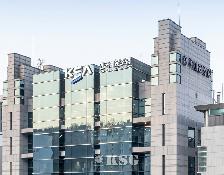
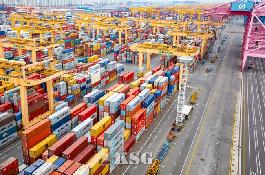




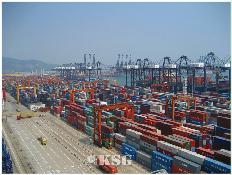
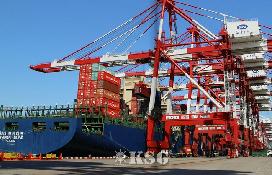
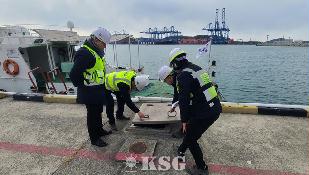
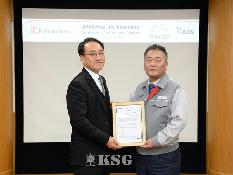
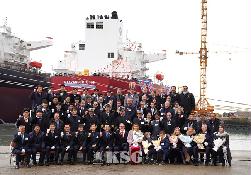

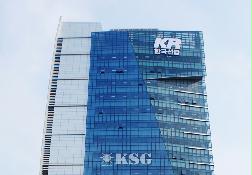

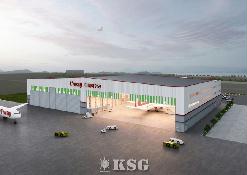
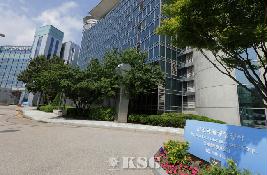

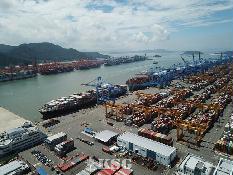
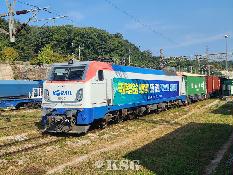

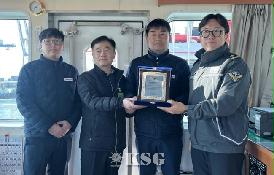
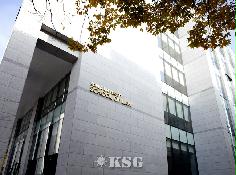
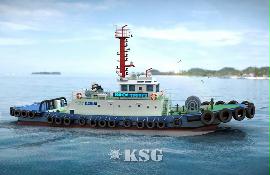









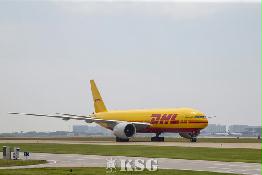


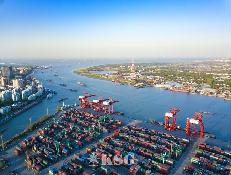









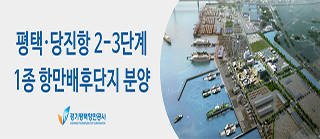












0/250
확인